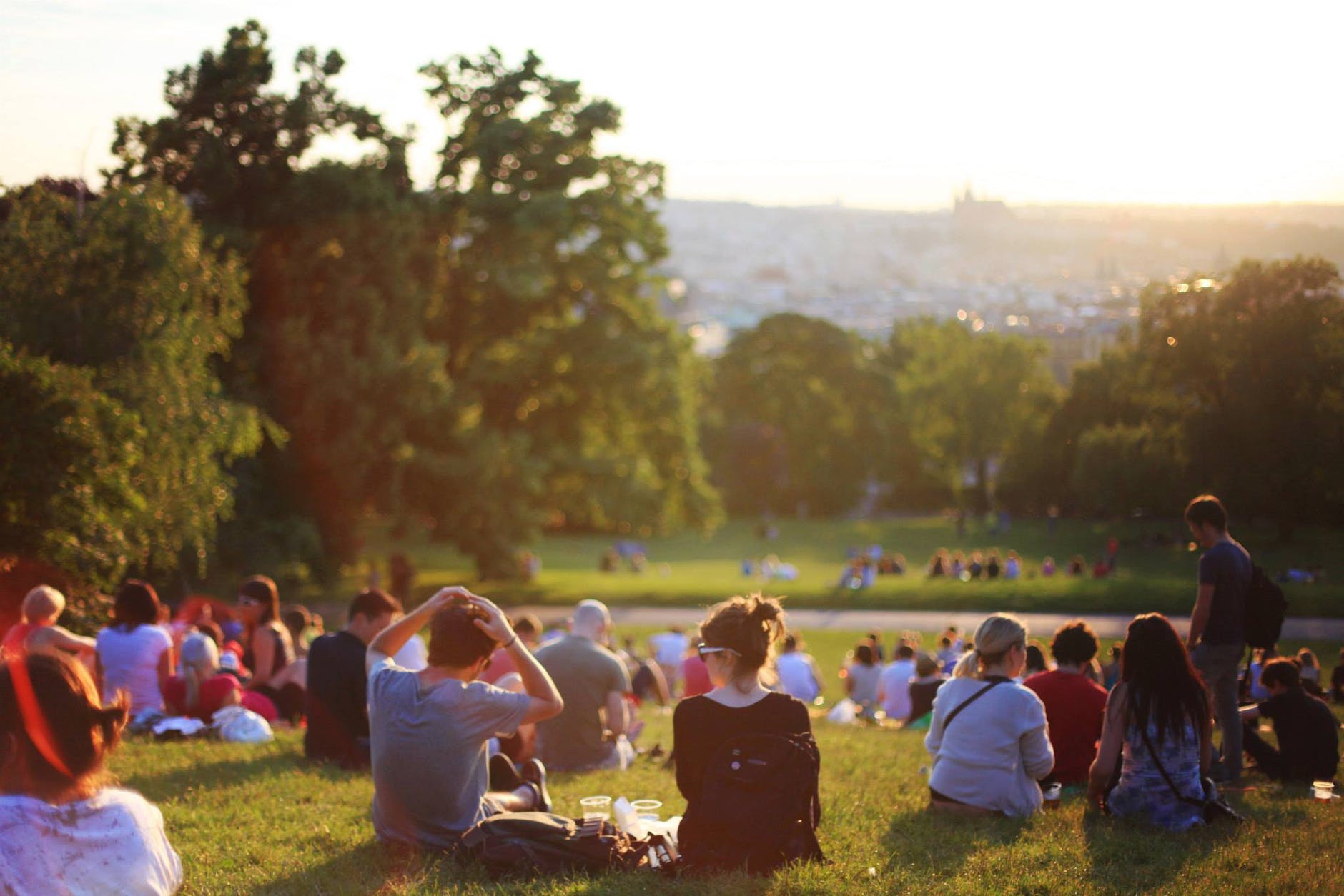Over the years, a conversation that I have had, on numerous occasions, relates to how we as Mennos (and others), do community. Within Mennonite circles, specifically, we have a long history of being very intentional about community-building, and have often done really well at it. At the same time, as with all systems, there are gaps, and places where we don’t meet our own standards, places where what we think of as average/typical/how it’s always done, is actually our idealized/glossed over version of reality – the “what you see on Facebook” version of how we’re doing at community, instead of the actual, real-world, hard reality of the fact that we have gaps, and places where people fall through the cracks.
(Before I get too far, you may be wondering how community fits in with sustainability – the short answer is that we are all working together to share one, livable, thriving planet. Finding ways to build community is one part of working together to share the planet as a whole.)

As a completely non-exhaustive, getting the discussion going, list, here are some of things that I think stand in the way of building better communities:
- Willful blindness – we can’t fix what we don’t’ acknowledge
- Lack of intention – it takes effort to put community building ahead of the countless other things that could take our time and attention
- Discrimination – We don’t name this often enough, but it’s there, and the impacts are real. If a faith group wants to build community, but, for example, opposes full rights for LGBTQ2+ members of the community, the group is choosing to prioritize discrimination over community, welcome and inclusion. Likewise, a faith group may claim to welcome our Middle Eastern neighbors, but support wars in the region that cause harm. We can’t do both – if we want to be in community with our neighbors, we can’t support wars that hurt others. We can’t support wars and then be proud of being a “safe haven” for refugees – or, even worse, support wars and then refuse to accept refugees that are fleeing the very wars we are supporting.
- Other – there are many others, but these are the first few that came to mind for me.

So, given all of this, how do we move forward more positively? Here’s my preliminary list:
- Admit that we all do some parts of community well, and have room to grow, at the same time
- Treat others as well as we want to be treated. If we do not want groups (faith, community or anything else) to discriminate or close doors to us, we absolutely can not do that to others. We can’t be grateful that we are “in” while supporting policies (based on gender and sexuality, race, religion, ethnicity or anything else) that keeps others “out”. Doesn’t matter if the negative thing that we are promoting doesn’t impact us directly (eg “I don’t identify as xxx, so I can support hurtful policies on that topic, because it won’t exclude me directly.”)
- Actively work to find people to include, who might really appreciate an invite, instead of limiting to the usual group (eg when planning an event/coffee meet up or anything else)
- Adjust systems, when needed, to ensure that everyone is welcome. For example, I know of many faith groups that have a formal “small group” system, to help build community – which can be great, in principle. However, I also know of times when the system denies new people a spot because “All of the groups are full and we don’t want to upset people by making a change, to allow space for the newcomers.” When systems are run like this, and there is active resistance to change, the systems that are supposed to ensure that everybody is included becomes the most direct, clear source of exclusion. (“Everybody has a spot – and nobody is willing to give up their very comfortable position to make space for a new person/family…”) It happens – even within our Menno congregations, and it’s something that I think we should be highly motivated to change.
- Be intentionally aware of when “this is how we’ve always done it” conflicts with “this is what we need to do to be welcoming and inclusive now.” If “the way we’ve always done it” is closing doors to people, and we don’t make a change, we are choosing to be unwelcoming, despite the fact that we probably aren’t naming it as such. Is that really the message we want to be giving to others? If we care more about inclusion than resisting change, are we making sure that the message is getting through to where it needs to be heard?
- Other?
The COVID pandemic, at least in my circles, has been, among many things, a reminder of how important community is. As we move forward, what are we, collectively, going to do to find a new, better normal, instead of going back to the way that it was? What areas of challenge have you seen? What steps have you been a part of to do better in these areas?
………………………………..
Dr. Dean Ornish, the founder of the Preventive Medicine Research Institute, says this about the effects of loneliness: “I am not aware of any other factor — not diet, not smoking, not exercise, not stress, not genetics, not drugs, not surgery — that has a greater impact on our incidence of illness, and chance of premature death.”
Never underestimate the power you hold as ONE PERSON to save the life of another.
“Come join us,” you’ll say with a smile.
And the recipient will sigh with relief … angst gone instantly … a world of pain cut in half.
One person can do that.
Am I invisible? One mom’s pain-relieving response to being excluded: Link
……………………………………..


Leave a Reply